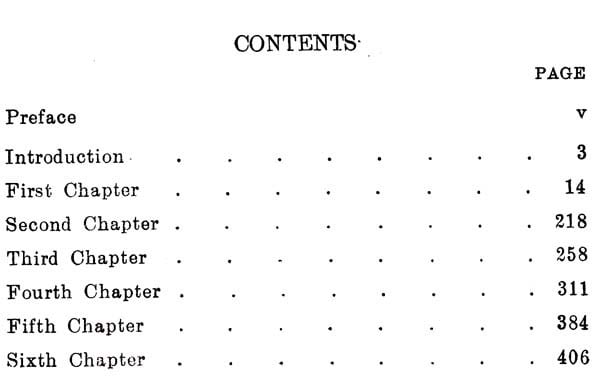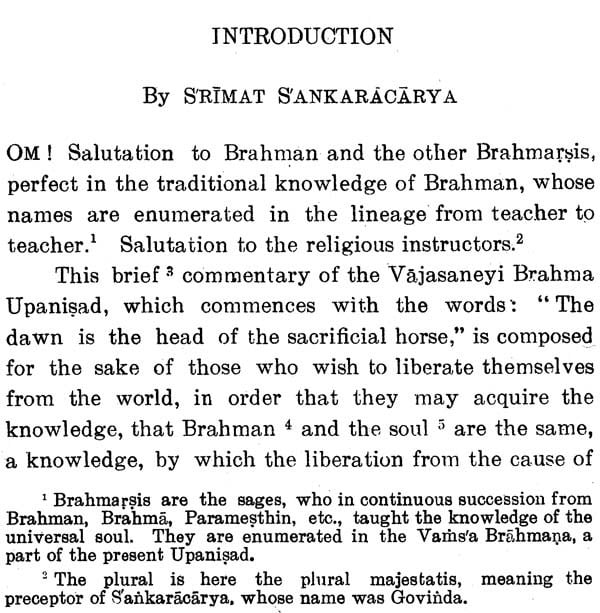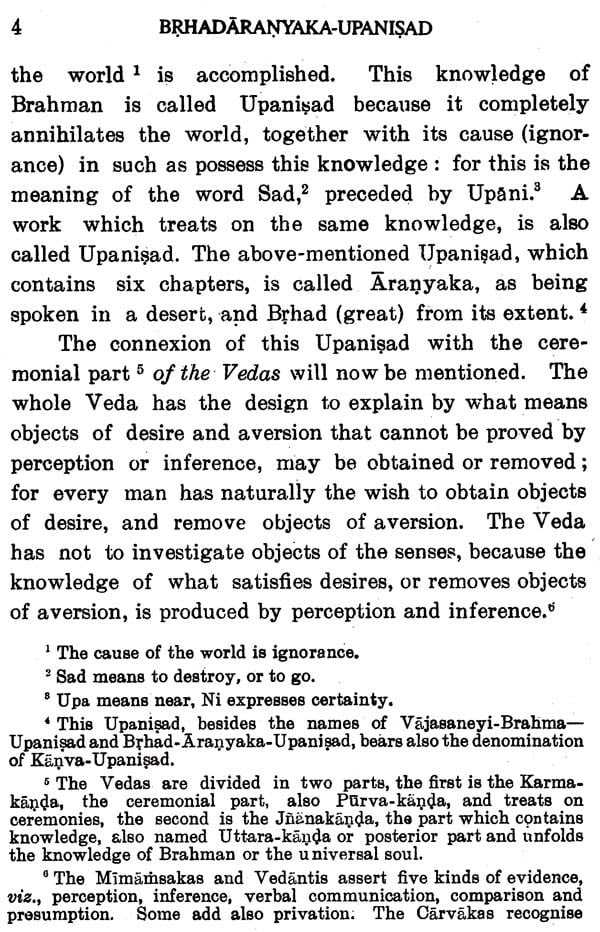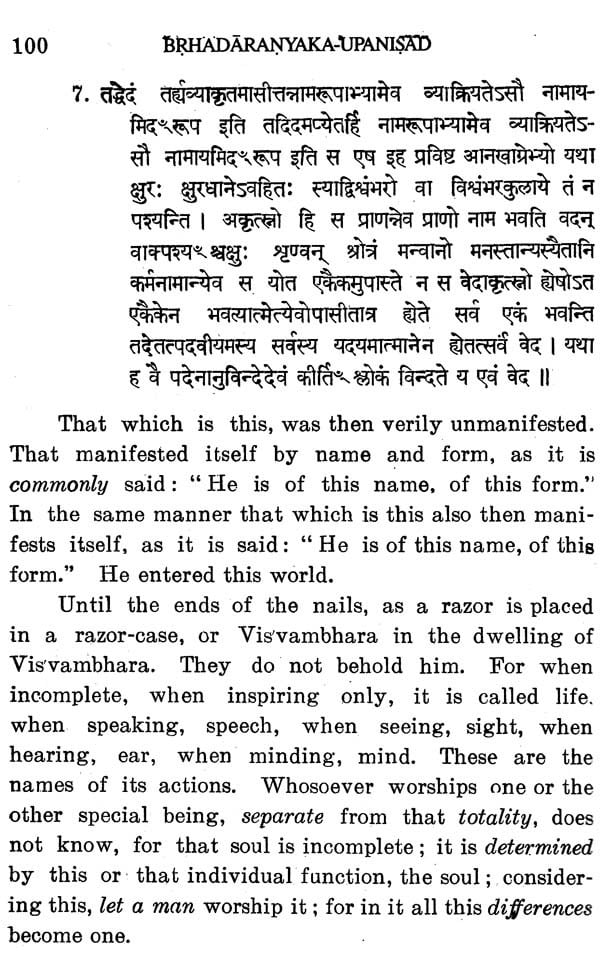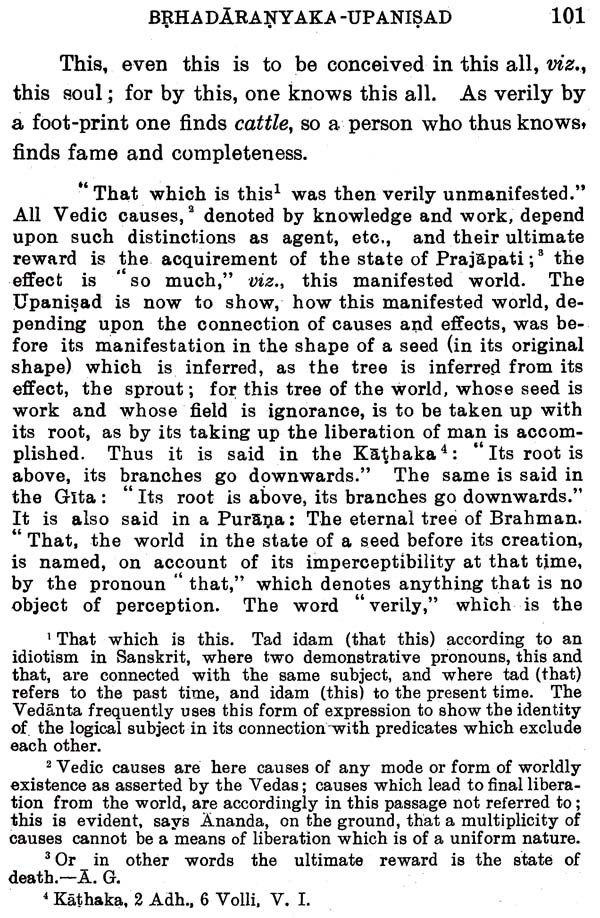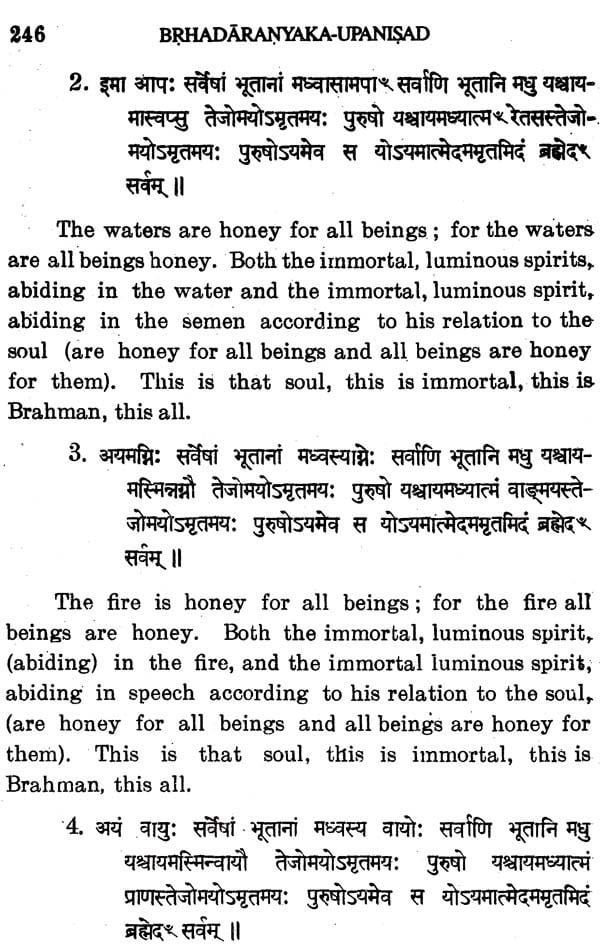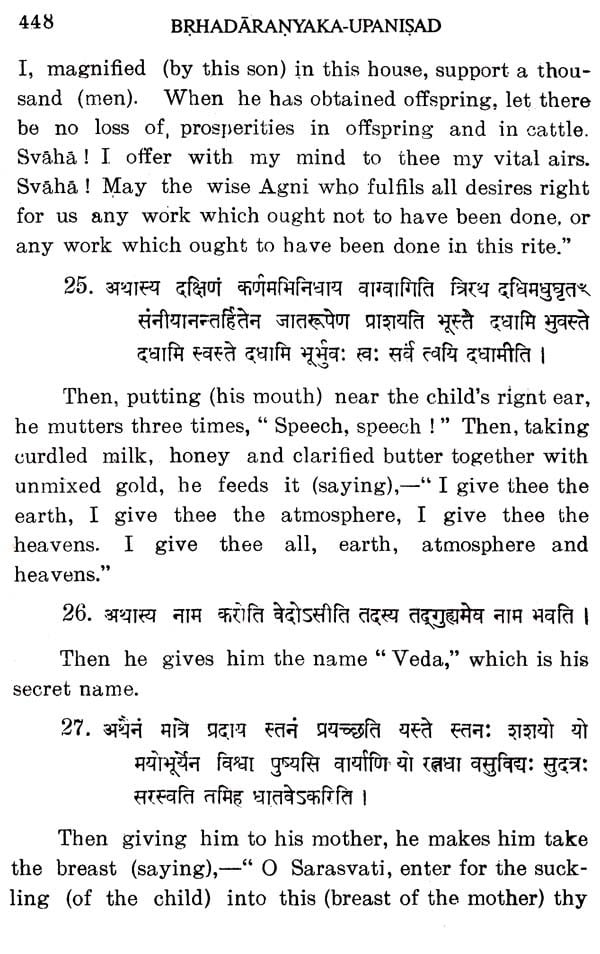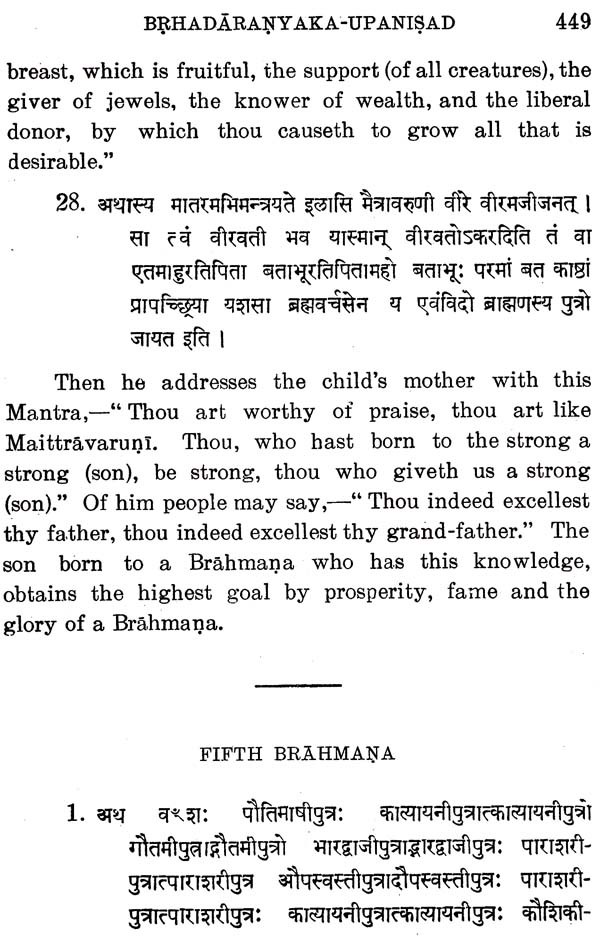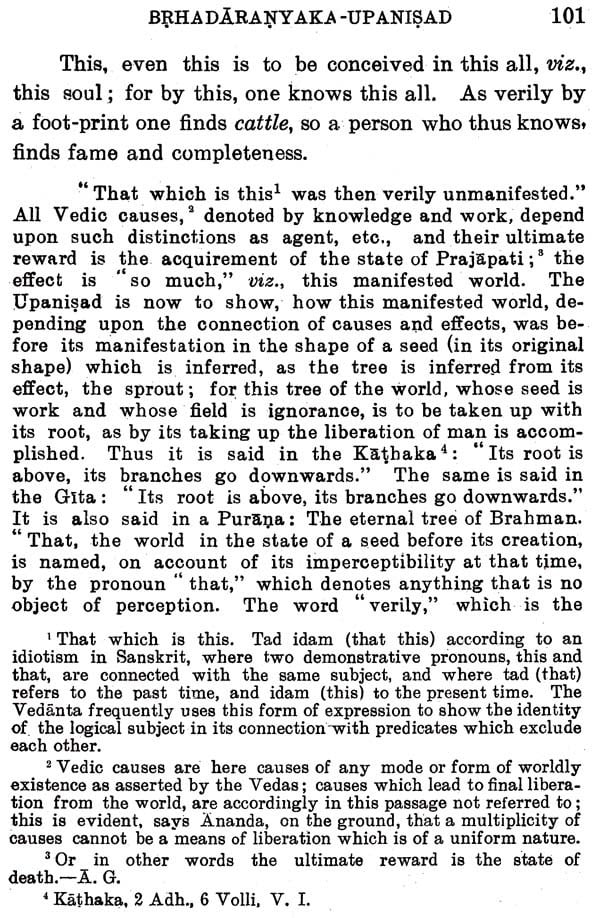About the Book "The dawn is the head of the sacrificial horse', is composed for the sake of those who wish to liberate themselves from the world, in order that they many acquire the knowledge, that Brahman and the soul are the same, a knowledge, by which the liberation from the cause of the world is accomplished. This knowledge of Brahman is called Upanishad because it completely annihilates the world, together with its cause (ignorance) in such as possess this knowledge : for this is the meaning of the word Sad, proceeded by Upani. A work which treats on the same knowledge, is also called Upanishad. The above mentioned Upanishads, which contains six chapters, is called Aranyaka, as being spoken in a desert, and Brhad (great) from its extent.
Preface THE chronology of the Old Testament has influenc ed almost all the speculations of Oriental scholars in regard to the possible date of the Vedas and the Upanisads. It is very difficult to say anything with positive confidence on this subject, but this much is certain, that the Upanisads, at least the ten principal ones, are not in any way posterior to the Vedas. The argument that a philosophy like that embodied in the Upanisads cannot exist side by side with the nature worship of the Vedas, loses its force when the Suktas of the Veda are regarded as symbolic only of those esoteric truths which were taught through the Upanisads to the select few. Zymology helps the solution of many a riddle over which philology has either sat in despair or which it has understood only to misunderstand. The history of all the great religions of the world shows, that there is nothing inconsistent in the possible existence of a sublime philosophy with the empty formalities of popular religion. And this circumstance in itself is an indirect argument against the later origin of the Vedas and the Upanisads.
Introduction OM! Salutation to Brahman and the other Brahmaris. perfect in the traditional knowledge of Brahman, whose names are enumerated in the lineage from teacher to teacher. Salutation to the religious instructors.
This brief commentary of the Vajasaneyi Brahma Upanisads, which commences with the words: "The dawn is the head of the sacrificial horse," is composed for the sake of those who wish to liberate themselves from the world, in order that they may acquire the knowledge, that Brahman and the soul are the same, a knowledge, by which the liberation from the cause of Brahma sis are the sages, who in continuous succession from Brahman, Brahma, Parameşthin, etc., taught the knowledge of the universal soul. They are enumerated in the Vatsa Brähmana, a part of the present Upanisads.
The plural is here the plural majestatis, meaning the preceptor of Sankarācārya, whose name was Govinda. Brief it is called, in comparison with the more voluminous commentary, called the Bhartrprapancabhigya. 'Brahman, the universal soul.
The individual soul. According to the Vedantis the soul, independent of the body, is the substance which is pure existence, knowledge and bliss, and, which must therefore not be confounded with its faculties, the senses, the mind, intellect, etc.
**Contents and Sample Pages**

